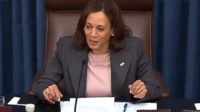New rules may affect bid protests on federal task-order awards of more than $10 million let by non-defense agencies under indefinite delivery-indefinite quantity (ID-IQ) contracts. With the Sept. 30 lapse of U.S. Government Accountability Office’s authority to weigh bid protests, protestors could have fewer useful options—unless and until Congress changes the rules.
Protests of military contract task orders and other types of federal contracts are not affected. But GAO and the Court of Federal Claims now will hear only extremely narrow task-order challenges, say attorneys Kristen Ittig, Dana Koffman and Kara Daniels of Arnold & Porter LLC. They say protestors will have to appeal to agency ombudspersons, whose reviews are much slower and lack “transparency.” Ralph White, a GAO managing associate general counsel, told Bloomberg BNA that use of a DOD ombudsperson in the 1990s “did not work.”
Federal contractors filed 2,639 protests to GAO in fiscal 2015, up steadily in the past 10 years. Only about 13% involved task-order disputes, but these were generally larger-dollar contract amounts or had more complex issues, said online legal publication Law 360. Between 2011 and 2015, protests of awards between $100 million rose 59%. U.S. agencies also may be looking to consolidate more procurement into ID-IQ contracts, Law 360 said. Congress could address the issue when it returns from the election recess to take up the fiscal 2017 defense spending bill. But participants say the House and Senate now have markedly different positions related to the task-order bid-protest fix.





Post a comment to this article
Report Abusive Comment